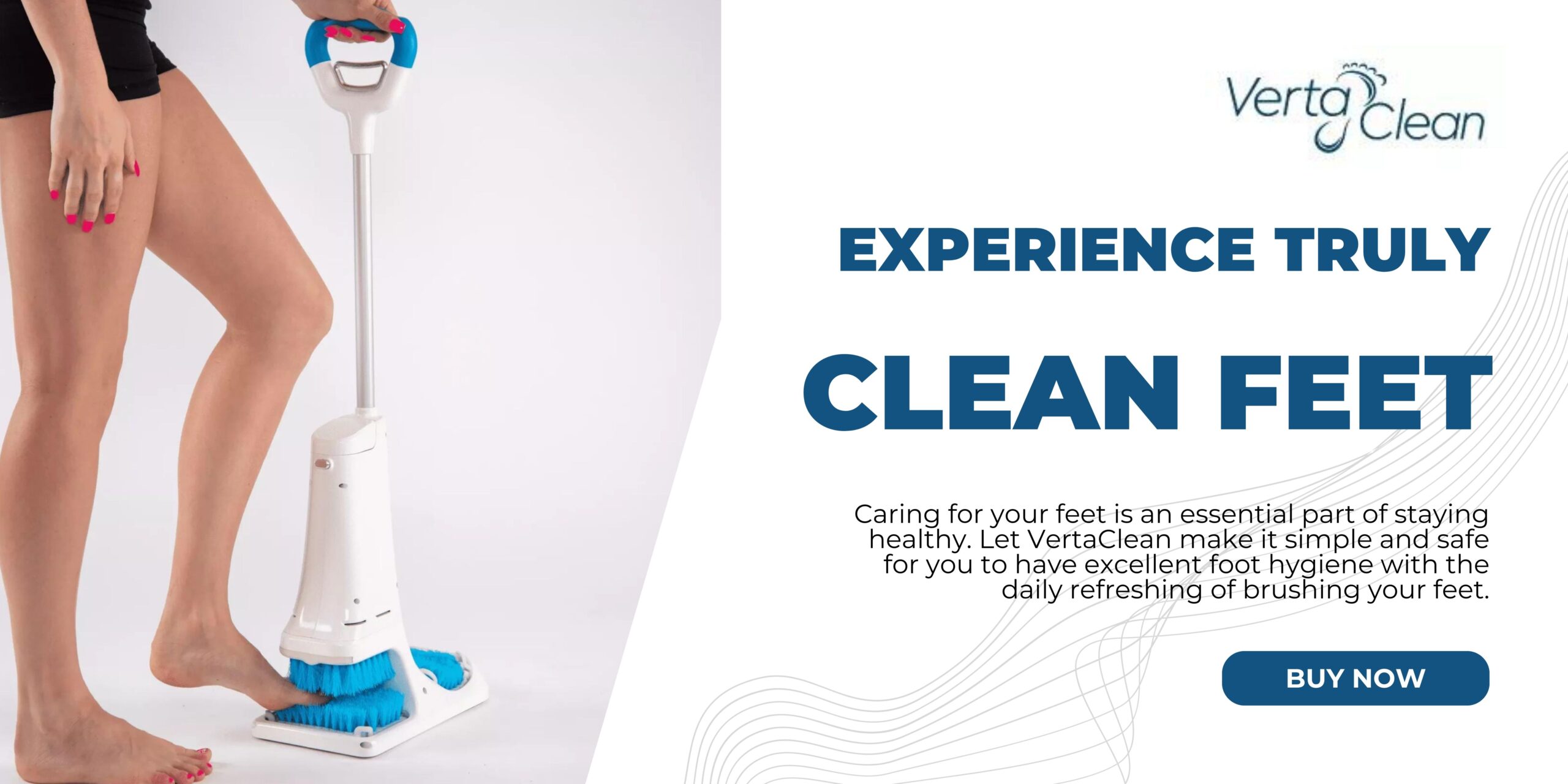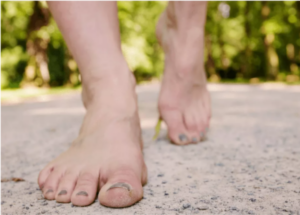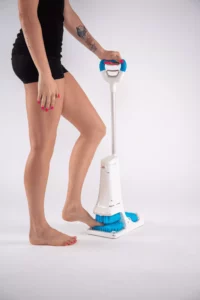Standing shower foot scrubbers are a popular hygiene tool, designed to make the task of foot cleaning convenient and effortless. However, a question that frequently arises among users and potential buyers is: Can the standing shower foot scrubber be used on polished or tiled shower floors? This article aims to shed light on this question and guide you through the complexities of using foot scrubbers on different types of shower floors effectively and safely.
The first section will delve into the material composition of standing shower foot scrubbers, providing an understanding of their structure and design, which is essential to determine their compatibility with various floor types. Following this, we will explore the effects of foot scrubbers on polished shower floors. A polished surface can be particularly sensitive, and it’s critical to understand how a foot scrubber may interact with it.
In the third section of this article, we will discuss the impact of foot scrubbers on tiled shower floors. Tiled floors present a different set of challenges and benefits when it comes to using a foot scrubber. Subsequently, we will touch upon the safety considerations when using foot scrubbers on polished or tiled floors. Safety is paramount, and it’s important to know how to use these devices without risking slips or falls.
Finally, we will talk about the proper usage and care of standing shower foot scrubbers on different floor surfaces. Using a tool correctly can significantly extend its lifespan and maintain the condition of your shower floor. By the end of this article, you should have a comprehensive understanding of how to use your standing shower foot scrubber effectively and safely on polished or tiled shower floors.
Understanding the Material Composition of Standing Shower Foot Scrubbers
Understanding the material composition of standing shower foot scrubbers is essential in determining if they can be used on polished or tiled shower floors. Standing shower foot scrubbers are typically made from materials like plastic, silicone, or rubber, which are known for their durability and water resistance. These materials are also firm but gentle enough to cleanse and exfoliate the feet without causing injury.
However, the type of material used in the construction of the scrubber can have different effects on various floor types. For example, while a silicone foot scrubber may glide smoothly over a polished shower floor without causing scratches, it could potentially slip and slide on a tiled floor, depending on the texture and finish of the tiles. Conversely, a plastic or rubber foot scrubber could provide better grip on a tiled floor but might cause minor scratches on a polished surface if not used carefully.
The design of the scrubber also plays a big role. Some foot scrubbers have suction cups at the bottom to hold them in place, thus minimizing the chance of slipping or sliding during use. Others have abrasive surfaces designed to remove hard skin and calluses. However, such designs could also potentially scratch or damage sensitive floor surfaces.
Therefore, it’s crucial to consider the type of material and design of a standing shower foot scrubber before using it on a polished or tiled shower floor. It’s best to read the product description carefully or consult with the manufacturer to ensure the scrubber is suitable for your specific floor type.
The Effects of Foot Scrubbers on Polished Shower Floors
The standing shower foot scrubbers are increasingly becoming popular due to their convenience and benefits, such as promoting better foot hygiene and reducing the risk of foot-related issues like athlete’s foot. However, when it comes to using them on polished shower floors, certain considerations need to be made.
Polished shower floors, usually made of materials such as granite, marble, or polished ceramic, are known for their shiny, smooth, and appealing finish. They provide an elegant and clean look to the bathroom. However, they can also be delicate and prone to scratches, marks, or damage if not handled with care. When using a standing shower foot scrubber on such surfaces, there’s a possibility that the scrubber may cause scratches or leave marks on the floor, especially if it has hard bristles or a rough base.
Therefore, it’s recommended to opt for foot scrubbers with soft bristles and a non-slip base to minimize the risk of damaging the polished floor or causing accidents due to slipping. It’s also essential to ensure the scrubber is kept clean and free from any grit or particles that could potentially scratch the floor.
In conclusion, while standing shower foot scrubbers can be used on polished shower floors, caution should be exercised to prevent any potential damage. Regular cleaning and maintenance of both the scrubber and the floor should be practiced to preserve the integrity and appearance of the polished shower floor.
The Impact of Foot Scrubbers on Tiled Shower Floors
Standing shower foot scrubbers are popular bathroom accessories designed to promote foot hygiene and offer a mini-foot spa experience in the comfort of your own home. When talking about their impact on tiled shower floors, one must consider the physical nature of the scrubber and the material of the tiles.
Most foot scrubbers are made of plastic or rubber with bristles, and they have suction cups at the bottom that adhere to the floor of the shower. These materials are generally safe to use on tiled shower floors. They are designed not to scrape or damage the floor while providing efficient scrubbing action for the feet. However, certain types of tiles may be more susceptible to wear and tear than others. For instance, ceramic and porcelain tiles are usually hardy and can withstand the suction and release action of the scrubber. On the other hand, softer or more porous tiles, such as limestone or marble, may be more prone to scratches or damage over time.
Moreover, it is crucial to consider the grout between the tiles. The foot scrubber should not disrupt or damage the grout, which can lead to water seeping underneath the tiles and causing potential damage. It is advisable to check the condition of the grout regularly and reapply it if necessary.
Lastly, the use of foot scrubbers on tiled shower floors should not compromise safety. The suction cups on the scrubber should provide enough grip to prevent slipping, but it is always necessary to make sure the scrubber is securely attached to the floor before use.
In conclusion, while standing shower foot scrubbers can be used safely and effectively on most tiled shower floors, it is essential to consider the type of tile and the condition of the grout to ensure a long-lasting and damage-free use.
Safety Considerations when using Foot Scrubbers on Polished or Tiled Floors
Safety is of paramount importance when using foot scrubbers on any surface, including polished or tiled shower floors. Since these surfaces can often be slippery when wet, it is essential to take certain precautions to prevent accidents.
Firstly, it is recommended to ensure that the foot scrubber is securely attached to the floor of the shower. This can be achieved either by using suction cups, adhesive strips or any other similar mechanism. A securely attached foot scrubber will provide a stable platform for the user, thereby reducing the risk of slipping or falling.
Secondly, it is advisable to use the foot scrubber gently, especially on polished floors which may be more prone to scratches or other damage. The user should avoid applying excessive pressure while scrubbing, as this could potentially damage the floor surface.
Lastly, it is important to clean the foot scrubber regularly to prevent the buildup of soap residue or other materials, which could make the scrubber more slippery over time. This is particularly important in a shower environment where soap and water are constantly in use.
In conclusion, while foot scrubbers can be a useful tool for maintaining foot hygiene, they should be used with caution on polished or tiled shower floors. By adhering to these safety considerations, users can ensure a safe and effective foot scrubbing experience.
Proper Usage and Care of Standing Shower Foot Scrubbers on Different Floor Surfaces
Standing shower foot scrubbers are a fantastic innovation, and their functionality extends to various types of shower floors including polished and tiled surfaces. However, to maximize their utility and longevity, it is crucial to understand the proper usage and care of these devices.
The first step in proper usage involves understanding your specific type of shower floor surface. Polished surfaces may be more susceptible to scratches, while tiled surfaces could have grout lines that can affect the scrubber’s performance. Therefore, ensure the scrubber is used gently to avoid damaging the floor surface.
When it comes to care, cleanliness is key. Shower foot scrubbers can harbor bacteria and fungi if not cleaned regularly. A simple rinse after each use can help eliminate any residues or accumulated soap. For a thorough cleanup, a mixture of warm water and mild soap can be used. It is advisable to let the scrubber dry thoroughly between uses to prevent the growth of bacteria or mold.
Lastly, the lifespan of your scrubber can be extended by avoiding the use of harsh chemicals that could potentially degrade its material. Instead, opt for natural cleaning options, or mild detergents that are safe for use.
In conclusion, standing shower foot scrubbers can indeed be used on polished or tiled shower floors, provided they are used and cared for appropriately. This not only ensures a clean and refreshing foot scrubbing experience but also maintains the integrity of your shower floors.




